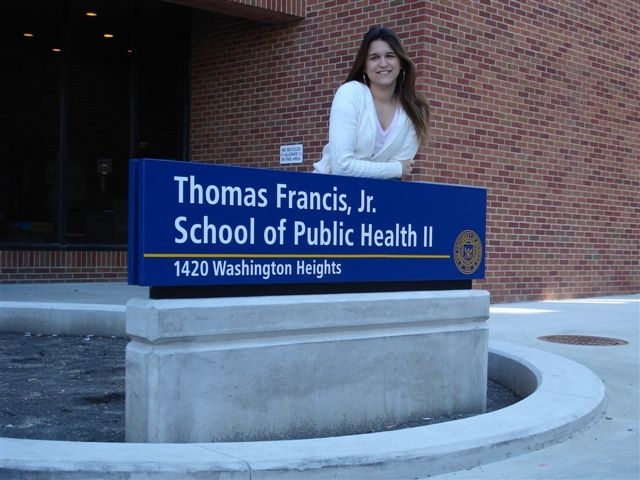Research
SAO PAULO BUSINESS SCHOOL/ FUNDAÇÃO GETÚLIO VARGAS (EAESP/FGV), São Paulo, Brazil (2014-2016)
Industrial policy and medicines in Brazil: State, Markets and sectoral arrangement
Post: Postdoctoral fellow (principal investigator)
Few developing countries understand the production of medicines as an industrial strategy as Brazil. These countries are usually discouraged to adopt industrial policies for this sector given the associated costs; on the other hand, they are encouraged to promote access to medicines. How can innovations in public policies in Brazil contribute to understanding and overcoming the contradiction between the availability of health inputs and social protection policies? Previous studies have analysed the implications of health industrial policy for economic development.
Sponsor: Sao Paulo Research Foundation (Fapesp)
CENTER FOR METROPOLITAN STUDIES / BRAZILIAN CENTER FOR ANALYSIS AND PLANNING (CEM/CEBRAP), Sao Paulo, Brazil (2012 - 2013)
Federalism and pharmaceutical assistance: an analysis of the program for high cost medicines
Post: Postdoctoral fellow (principal investigator)
Description: Brazil has a relevant, although little known, free and universal program for high cost medicines to treat illnesses such as cancer and kidney failure. This program is partly financed by the Ministry of Health (MoH) (approx. R$ 2 billons in 2010) and the responsibility for its management and the purchase of medicines is with the State Health Secretariats (SHS). However, until 2009 there were no formal rules defining the responsibilities of each of these two levels of government in managing and financing this initiative. Furthermore, SHS have faced important challenges in the provision of medicines, with an increasing demand of individual lawsuits (particularly for high cost medicines). Why have state governments decided to keep the responsibility of the program of high cost medicines, despite the increase in judicial demands? It is argued that although subnational governments have the autonomy to define their agenda, they opt for assuming the responsibility of federal policies based on a calculation of the cost/benefits of this decision (considering the historical legacy of the policy, capacity to operationalize it, and political action) (cf. Arretche). This comparative study of three regions of Brazil s federation where this dilemma is more evident (SP, RJ, MG) will use documentary research and semi-structured interviews to trace the historical process of federative bargains in pharmaceutical assistance.
Sponsor: Sao Paulo Research Foundation (Fapesp)
UNIVERSITY OF EDINBURGH, SCHOOL OF SOCIAL AND POLITICAL STUDIES, United Kingdom (2007-2010)
Reforming pharmaceutical regulation: a case study of generic drugs in Brazil (2007-2011)
Post: Principal investigator
Description: Brazil is renowned worldwide for its remarkable reforms in pharmaceutical regulation, as the Generic Drug Act that have enhanced access to essential medicines while lowering drug costs. In contrast with analysis of pharmaceutical regulation that invokes international guidelines as inspiration for countries to reformulate their norms or argues that regulations emerge in order to serve the interests of powerful interest groups; this paper focuses on actors' preferences and demands to explain how Brazil promoted this large-scale regulatory policy. Paradoxically, the generic drug regulation introduced in the name of patients and opposed by local firms given the high cost to adapt its plants and processes, is today opposed by important patient advocacy groups but solidified by the strong support of local and multinational pharmaceutical firms.
Sponsor: The University of Edinburgh Development Trust, UK
UNIVERSITY OF MICHIGAN, SCHOOL OF PUBLIC HEALTH, United States (2006-2007)
Authority and Responsibility in European Health Policy: The Diffusion of Power in European Health Policy (2006-2008)
Post: Visiting research fellow
Description: The efficiency and effectiveness of health policy depends in large part on the level of government carrying out the policy. There is persistent confusion about decentralization in health care and what it is supposed to do. We approach the question by explaining authority in health care systems. There are many theories of why a given policy should be at a given level- but what explains what happens? We test two broad theories of authority allocation. The economic theory suggests that rational governments will concentrate information-intensive operations such as primary care planning at lower levels, and redistributive and regulatory functions such as health financing and pharmaceuticals at higher levels. The political theory, by contrast suggest that all governments will concentrate in areas where they can reap public credit, and will all avoid areas that have a high concentration of blame (such as service reconfiguration).
Coordinator: Dr Scott Greer
Sponsor: Nuffield Trust, UK
Mobilizing bias in Europe: Lobbies, democracy, and EU health policymaking (2007)
Post: Visiting research fellow
Description:
Do interest groups help democratize or legitimize the EU? We test four
hypotheses about the nature of lobbying resources, developed in
aggregate quantitative studies or qualitative case studies, in the
health sector. We use a newly constructed database, from four official
and public sources, that allows us to compare c. 70 health groups
against c. 700 general EU interest groups, and supplemented by
literature review, a survey, and 51 interviews. Are the big
organizations in Brussels the same as the ones in member states? Are
some countries’ lobbies more engaged than others? And does the structure
of EU lobbying itself create insiders and outsiders? Our answers to the
questions suggest that EU interest intermediation does little to
redress imbalances of power.
Coordinator: Dr Scott Greer
Sponsor: Nuffield Trust, UK
MICHIGAN STATE UNIVERSITY, DEPT OF POLITICAL SCIENCE, United States (2006-2007)
Health economy among São Paulo Municipalities, Brazil (2006)
Post: Visiting research fellow
Description:
The project has studied the new roles in the financing and provision of
primary health care of the local government in Brazil. It evidences
that decentralization process has favored strong decisional space for
the local government (municipalities). In the Stated of Sao Paulo, local
autonomy has been significantly associated with more governmental
spending in health care functions and with better primary health care
performance.
Coordinator: Dr Nilson do Rosario Costa
Sponsor: São Paulo Research Foundation (Fapesp)
OSWALDO CRUZ FOUNDATION, MINISTRY OF HEALTH, Rio de Janeiro, Brazil (2001-2008)
Devolution, AIDS and Harm Reduction in Brazil (2005-2008)
Post: Principal Investigator
Description:
Brazil's AIDS program is world-renown for providing free and universal
access to AIDS treatment, successful civil society partnerships,
prevention programs, and its nationwide needle exchange programs (NEPs)
for injecting drug users (IDUs). In 2002, Brazil's highly centralized
National AIDS Program began decentralizing federal AIDS programs to all
of Brazil's 27 states and 422 municipalities to better integrate AIDS
programs with primary health care. Decentralization also aimed to
promote cost-sharing with states and municipalities. It is still unclear
what effects decentralization will have on AIDS programs, particularly
controversial programs such as those that serve IDUs and commercial sex
workers. This research proposal will examine how financial and
organizational decentralization have impacted fiscal transfers to states
and municipalities for needle exchange programs between 1998 and 2006.
Sponsor: Ministry of Education (CAPES), Brazil
Media quotes: Agencia de noticias Fiocruz, Canal Futura.
Expanding access to antiretroviral drugs in Brazil: a policy analysis (2005-2007)
Post: Associate Researcher
Description:
Joint project with Harvard School of Public Health. This research aims
to better understand how and why the Brazilian AIDS Program
simultaneously implemented several complex, highly controversial
policies to promote large-scale AIDS treatment programs at the national
and international level. This case study employs a political economy
theoretical construct to analyze Brazil's recent AIDS-related health
reforms. Qualitative interviews with key policy makers, diplomats and
AIDS experts will explore the factors that influenced former President
Fernando Henrique Cardoso and Brazilian Ministry of Health (MOH)
leaders' controversial decisions to 1) to reverse-engineer and produce
generic copies of off-patent ARVs for public use in 1994; 2)
reverse-engineer patented ARVs in 1998 in order to threaten to issue
compulsory licenses for generic production of patented ARV medicines in
2001. This later step induced multinational pharmaceutical companies to
engage in ARV price negotiations with the Brazilian MOH between 2001 and
2004, reducing ARV costs significantly. .
Coordinator: Dr Amy Nunn
Sponsor: United States Departament of Defense and Harvard Center for Population and Development Studies
Media quotes: BBC, Agencia de Noticias AIDS, Harvard School of Public Health News and others.
International Network on HIV/AIDS Management & Care and Women’s Reproductive Choices: Focus on Brazil (2005-2006)
Post: Associate Researcher
Description:
The proposed study and intervention will follow 500 HIV-positive women
aged 18-50 years in Rio de Janeiro, Brazil and will examine the impact
of HAART on women’s sexual and contraceptive behavior, desire and
intention to have more children, fertility, and survival of their
children. Brazilian findings will be full integrated into a
comprehensive network of similar initiatives carried out in South Africa
and Uganda, in cooperation with colleagues from Canada and the US.
Coordinator: Dr Francisco Inacio Bastos
Sponsor: Ford Foundation
Assessing the Effectiveness and Potential Unintended Consequences of Oral HIV Testing Among Drug Users in Brazil (2004-2006)
Post: Associate Researcher
Description:
Joint project with Yale University and Iowa University. Main goal: To
increase the use of HIV/AIDS diagnostic and counseling services among
drug users Specific aims: 1. To make oral HIV testing available to a
sample of street drug users in three distinct locations in the Rio De
Janeiro area. 2. To determine the impact of oral testing on their
likelihood of returning for their post test counseling session. 3. To
compare those individuals who have never received an HIV test prior to
the current project with those individuals who have previously been
tested for HIV. 4. To compare the effectiveness of limiting mismessaging
of an enhanced counseling and testing protocol based on verbal and
experiential messages against a standard oral testing and counseling
protocol based only on verbal messages. Study design: The study is will
employ both qualitative and quantitative data collection methods.
Coordinator: Dr Merril Singer (Yale University), Dr Scott Clair (Iowa University) and Dr Francisco I. Bastos (FIOCRUZ)
Sponsor: Hispanic Health Council.
Opportunities
to support adherence and safe sex among people living with HIV/AIDS
receiving HAART in Public Health Clinics in Rio de Janeiro, Brazil
(2005).
Post: Associate Researcher
Description: Joint project with Johns Hopkins University.
Coordinator: Dr Deanna Kerrigan (Johns Hopkins) and Dr Francisco I. Bastos (FIOCRUZ)
Sponsor: Johns Hopkins University
Pilot Study: Assessing HIV-infected Drug Users Access and Adherence in Rio de Janeiro, Brazil. (2004-2005).
Post: Associate Researcher
Description:
Main goal: To assess HIV-infected drug users barriers and facilitators
to access and adhere to HIV treatment and anti-retroviral therapy in Rio
de Janeiro, Brazil. Study design: The proposed study will employ both
qualitative and quantitative data collection methods. Study population:
The research will involve HIV+ drug users, both currently engaged and
not engaged in ARV therapy.
Coordinator: Monica Malta
Sponsor: Centre for Addiction and Mental Health (CAMH), Canada.
The
Impact of Highly Active Anti-retroviral Therapy (HAART) for the
Treatment of HIV/AIDS on HIV-related Protective Behavior in Rio de
Janeiro, Brazil (2002-2003)
Post: Associate Researcher
Description:
Research Questions/Specific Aims 1. To investigate local beliefs and
attitudes regarding anti-retroviral therapy for the treatment of
HIV/AIDS among heterosexuals and infection drug users in Rio de Janeiro,
Brazil. 2. To develop a culturally appropriate and reliable measure of
"optimism-skepticism" related to HIV/AIDS as a result of access to
anti-retroviral therapy in Brazil. 3. To test the statistical
association between "optimism-skepticism" regarding HIV/AIDS due to
anti-retroviral therapy and HIV-related behavior. 4. To explore possible
intervention models that could be employed to address "optimism"
regarding HIV/AIDS due to anti-retroviral therapy in future
prevention-care programming. Methods Study design: The proposed study is
formative and cross-sectional in nature and will employ both
qualitative and quantitative data collection methods. Study population:
The research will involve two sub-populations: (a) heterosexual men and
women and (b) injection drug users.
Coordinator: Dr Deanna Kerrigan (Johns Hopkins) and Dr Francisco I. Bastos (FIOCRUZ)
Sponsor: Johns Hopkins University

